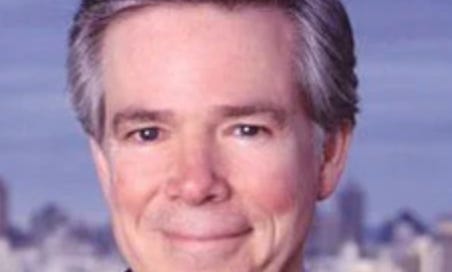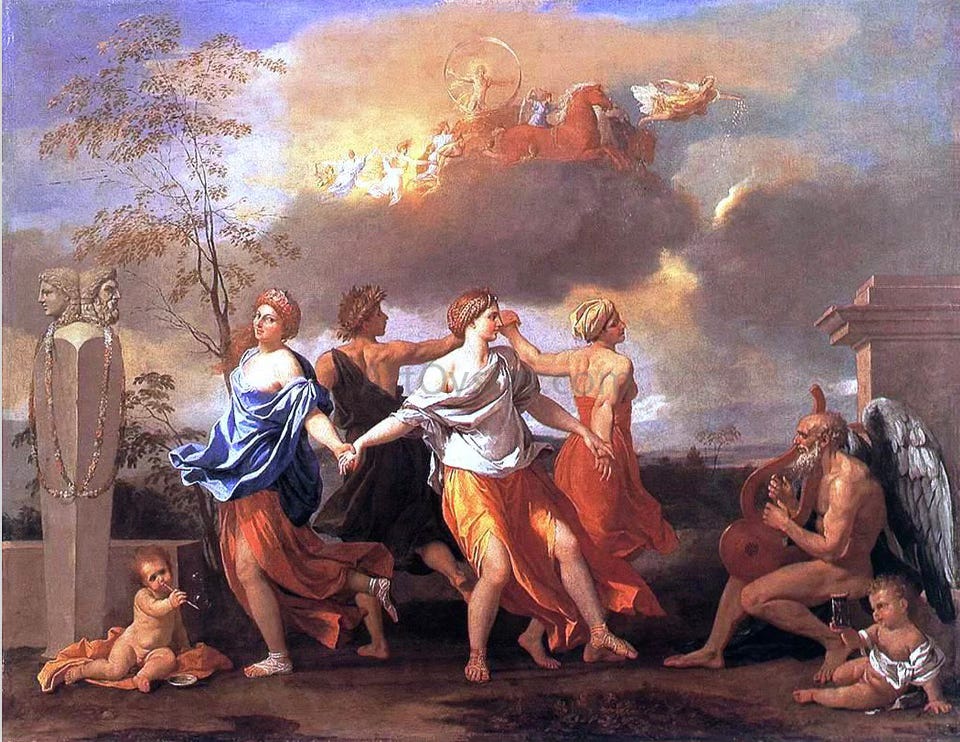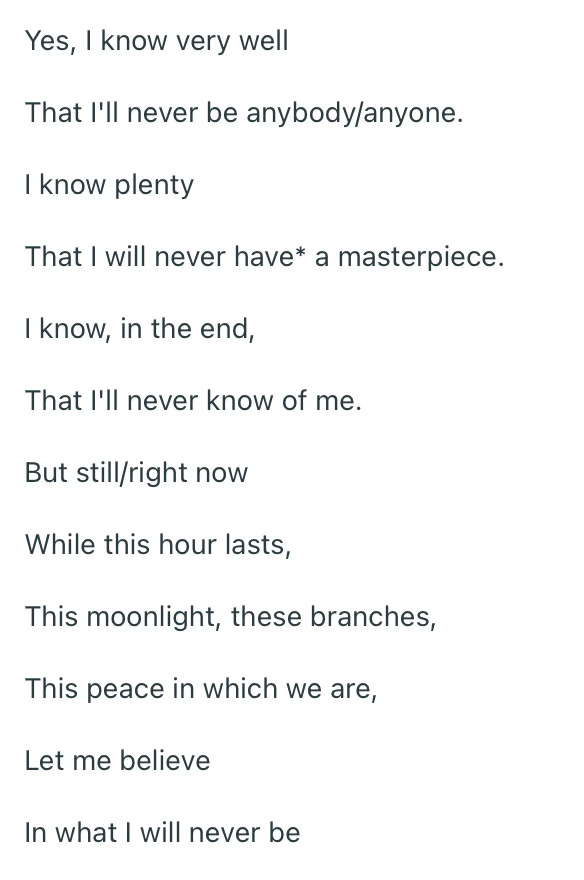Bob Brown's Cultural Life
A guest whose fantasy dinner party includes Raquel Welch, August Wilson and Minnie Pearl lives a rich cultural life. Plus, his interview with Nobel Prize Laureate Bob Dylan.
From coaxing Bob Dylan into giving his first network interview and reporting on a miscarriage of justice that freed three men from prison in Pennsylvania, for nearly 30 years, Bob Brown showed viewers of ABCNEWS’ 20/20 what a nimble mind armed with a bright light can accomplish. The six time Emmy winner is our guest in the 7th edition of Now You Know—The Cultural Lives of Others. A lot of learning goes into a long and distinguished career as an investigative reporter.
Bob Brown, who has learned to code his own applications, shares his cultural treasures and they are as diverse as his reporting. And he offers some advice for aspiring reporters.
Favorite author or book.
Ian McEwan and Virginia Woolf—because they dissect relationships and their consequences with such clarity. It’s difficult to select a favorite book. Preferences change with age. My favorite is often the one I’ve just finished. In recent years, the list would have included “All the Light We Cannot See” by Anthony Doerr for the beauty of its prose and the sweep of its storytelling; “Pure” by Andrew Miller for its lessons in mortality; “Great Circle” by Maggie Shipstead and “Lessons in Chemistry” by Bonnie Garmus, intricate stories of how opportunities and just outcomes have been beyond the reach of so many for too long. Titles that always come to mind regardless of my age and current circumstances are “Things Fall Apart” by Chinua Achebe and “Empire of the Summer Moon” by S.C. Gwynne. They reminded me of my ignorance.
The book you are reading.
“The Heaven and Earth Grocery Store” by James McBride.
The book you couldn’t finish.
Finnegan’s Wake
The book you’ve long intended to read but never get to.
The Magic Mountain
Most memorable live performance.
In the November after 9/11, City Center Encores in Manhattan staged what was then called a “Broadway Bash”—a concert featuring songs and performances from the history of Broadway musicals, many of which had been overlooked or forgotten. At the end of the concert, Donna Murphy sang “I Happen to Like New York.” It is Cole Porter’s hymn to the city, and in the context of the year’s events it was a stunning affirmation of what it means to be a New Yorker and share, with so many others, what the city both asks of and gives to our lives.
Your best binge.
Streaming every season of “Frasier.”
Favorite TV series.
The Wire
Favorite piece of music.
“A Nightingale Sang in Berkeley Square” by Nat King Cole. My wife and I fell in love to it.
The music that cheers you up
“Moon River” by Henry Mancini. Because of the story behind it. When I was assigned to do a profile of Mancini, he described how and why he wrote it in collaboration with Johnny Mercer, who supplied three sets of lyrics before deciding on the words we know. Mancini wrote the melody to cover only an octave and a note, so Audrey Hepburn could sing it in “Breakfast at Tiffany’s” without being dubbed by another vocalist. It’s one of the greatest pop ballads of its era. A studio executive wanted to cut it from the film. It cheers me up to think of how it has instead survived; and how a lyric that began “I’m Holly” in one of the three versions became, in its final version, a metaphor for exploring life.
If you could own one painting it would be…..
“A Dance to the Music of Time” by Nicholas Poussin, at the Wallace Collection in London. The inspiration for the title of Anthony Powell’s masterpiece.
The lyrics you wish you’d written
“Now You Know” by Stephen Sondheim
The poem/song that makes you wonder
“Yes, I Know” (Sim, sei bim) by Fernando Pessoa (as Ricardo Reis).
The instrument you wish you’d learned to play
Piano
Your guiltiest cultural pleasure
Coding my own computer applications
You wasted an evening…….
I can’t remember when. Even things I haven’t liked, moments I wished I hadn’t spent, have taught me something.
Something that ought to be better known.
Beware of those who claim to represent a consensus. The history of consensus in this world can be frightening. Especially since it is often destructive. And imposed, not real. Consider the annals of consensus on race; on religion; on geocentrism; on the aptitude of women; on the abilities of representative governments to rescue themselves from their worst instincts. To name a sad few. You cannot trust the purveyors of absolutism who always are battling for supremacy in the marketplace of ideas, usually to enrich themselves.
A recent discovery.
The extraordinary images returned by the James Webb telescope.
You’re having a fantasy dinner party, you’ll invite these guests…..
Rather than leaving out friends, I presume they know they’d all be invited.
Outside my own circle, among people I’ve met through work: David Lean, Stan Getz, George Carlin, Raquel Welch, Sir Georg Solti, August Wilson, Minnie Pearl, Sammy Davis, Jr., Katharine Hepburn, Waylon Jennings, Stephen Sondheim
The place you feel happiest.
Anywhere alone with my wife.
The book, movie and/or play that best depicts a reporter's life.
“Spotlight” and “She Said”
I was also impressed by a Finnish TV series titled “Enemy of the People”
The secret to the big get.
Tell the truth about why you want the story. Don’t offer manufactured sympathy—or, for that matter, anything in return. Explain that it will be heavily edited, but that you will do your best to ensure an accurate account. Even if it may be one the subject doesn’t fully agree with.
If you feel you have to compromise your ethics, bow out.
If you still get the story after all that, then you have something to work with.
The signs someone you were interviewing was not telling the truth.
Watch their eyes. You can see them start to think how best to avoid a question.
Advice for aspiring reporters.
Our brains are wired to confirm our prejudices, not to question them. Always wonder about the invisible influences on your work—things you have taken for granted and failed to question; things you were raised to believe; things that may seem obvious. Double-check. Attribute your information so the reader or viewer will know where it came from. Remain skeptical—of yourself.
Thank you, Bob Brown.
Here’s Bob’s 1985 interview with Bob Dylan.








I’ve known Bob for all my (and his) 80 years. My parents introduced his to one another. We were best friends growing to the wise old age of 11 in Tulsa where even at age 7 we “played” reporter (Bob) and director (me). Then a dozen years later he was best man at my wedding in NY. But we lost touch. And though I now live retired in Florida, wish we’d reconnected. Best to you oldest friend! jbe
Thank you, Kevin Rennie, for shining a bit of a spotlight on my father, as he would never do anything like that himself. I have lived in awe of him my entire life.